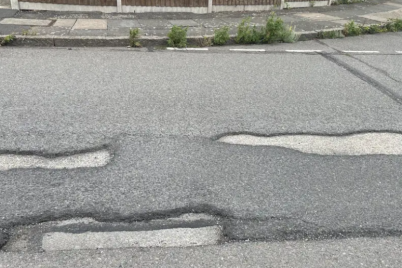Across London, a growing trend of overzealous environmental fines by local councils is drawing criticism from residents, politicians and campaigners alike.
A series of recent cases, including that of a woman fined for pouring coffee down a drain and a couple penalised for wind-blown recycling, has reignited debate over whether environmental enforcement in the capital has tipped from sensible deterrence into heavy-handed bureaucracy.
The latest controversy emerged in south-west London when Richmond-Upon-Thames Council fined Kew resident Burcu Yesilyurt £150 under Section 33 of the Environmental Protection Act 1990 for what she described as “just a tiny little bit” of coffee poured into a road gully near Richmond station.
Ms Yesilyurt said she had been about to board a bus and wanted to avoid spilling her drink, assuming that disposing of the small amount of liquid down a drain was the responsible option.
“As soon as I turned around, I noticed three men, enforcement officers, chasing me,” she said. “They stopped me immediately. It was quite a shock.”
The officers were unable to explain about any signs warning that pouring liquids into drains was an offence.
“I think the fine is extreme. It’s not proportionate.”
Richmond Council later reversed the penalty after reviewing body-worn footage and concluding the alleged contravention was “minor”.
In an email seen by the BBC, the council wrote: “I can advise that on review the Fixed Penalty Notice has been cancelled. Please accept my apologies for any upset or inconvenience this has caused you.”
The council added that it was “likely” Ms Yesilyurt’s appeal would have been successful had it been pursued formally.
Ms Yesilyurt said she was “quite happy the council recognised the sensitivity of this situation and they’ve reconsidered”. She noted that public reaction to the story had been “huge” and hoped it would prompt clearer guidance.
“I’ve not met anyone who knows it’s a criminal offence,” she said, calling for signs near bins and bus stops to make the law more obvious.
The case has become emblematic of what critics are calling overzealous environmental fining by London councils, with some arguing that minor, accidental infractions are being treated as serious offences. This risks undermining public support for legitimate environmental enforcement by penalising residents who are acting in good faith.
Another recent example occurred in September. In Haringey, north London, a couple were issued a £600 fine after a piece of cardboard with their address on it was found blowing about near their home.
The letter, which arrived a few days after the recycling collection, accused the couple of “failing in their duty of securing their waste”.
Resident Francesca Poncetta said she was stunned to receive the fine. “I’ve done all of my duties as a citizen, to dispose of my waste in my household. This does not feel fair at all,” she said.
Her partner, Pierce Rosamond, described the penalty as “not something we can just pay in a month and think ‘oh that’s fine,’” highlighting the financial strain such fines can cause for ordinary Londoners.
Haringey Council later admitted the notice had been issued incorrectly and cancelled the fine after reviewing the evidence.
A council spokesperson said: “There are occasions when notices are issued incorrectly, and residents can challenge the decision as was the case here. After considering the information provided, we will be cancelling this fixed penalty notice.”
Together, the two incidents illustrate the growing tension between environmental protection and public trust in local authorities.
Critics say councils, under pressure to boost revenue or meet environmental targets, are increasingly relying on enforcement firms and fixed penalty notices for even the most trivial actions.
This overzealous environmental fining by London councils risks criminalising everyday behaviour rather than fostering genuine environmental responsibility.
Pouring away a drink, or an item of recycling blown loose by the wind, may technically breach regulations, but many see the response as disproportionate to the harm caused.
While supporters of stricter enforcement maintain that such rules are essential to prevent pollution and protect public infrastructure, it is more than arguable that proportionate, educative approaches would avoid alienating residents who genuinely want to do the right thing.
In both Richmond and Haringey, the councils ultimately backed down, acknowledging that the cases did not warrant financial penalties. Still, the damage to public confidence may prove harder to reverse.
As Ms Yesilyurt put it, “It feels quite unfair.”















